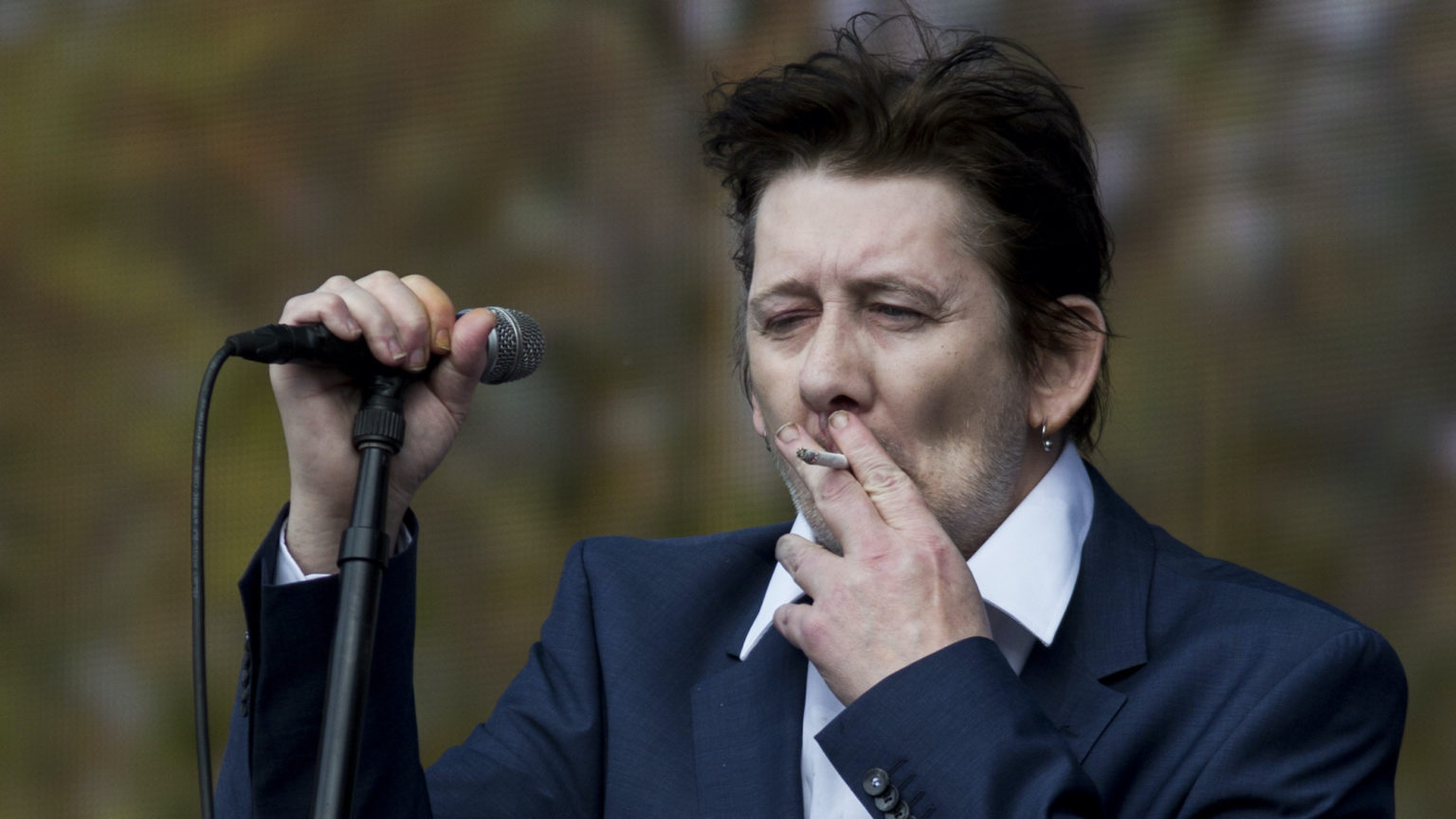Hands off ‘Fairytale of New York’
Calls to censor The Pogues have become their own festive tradition.

We seem to be getting into a very boring rhythm.
I’m not talking about the daily drudgery of life in lockdown – though that is extremely dull. Nor am I passing comment on the impending avalanche of old Michael Bublé Christmas tracks we will no doubt be subjected to in the coming weeks. No, the déjà vu I and many others are experiencing is down to yet another row over creative censorship. Once again, the fear that something might possibly upset someone somewhere has provoked the speech police to rear their exceedingly ugly heads.
The latest strike in the woke war on words has been laid upon the classic Christmas tune ‘Fairytale of New York’ by The Pogues and Kirsty MacColl. As the annual celebrations approach (assuming they are permitted to go ahead), the BBC has decided that Radio 1 will not play the original version of the song over the festive period. Instead, it will play a version that does not feature the offending words ‘faggot’ and ‘slut’.
It’s not the first time the song has been targeted. In fact, it has, ironically, become something of a Christmas tradition for people to attack it.
The terms used are old-fashioned, certainly. They are coarse and nasty, for sure. But in this context – a Christmas song telling a fictional story from the point of view of two ex-lovers – are they actually offensive?
A lot of people seem to think not. The song has been in the Top 20 in the charts at Christmas every year since 2005, and remains widely regarded as one of the greatest-ever festive tunes. Nor did The Pogues’ Shane McGowan appear to regret the lyrics when discussing them in 2018. ‘The word [faggot] was used by the character because it fitted with the way she would speak and with her character. She is not supposed to be a nice person, or even a wholesome person… not all characters in songs and stories are angels or even decent and respectable’, he said, though, admittedly, the band has now given different signals .
It is astonishing that this point needs to be made. But it appears some people can’t even handle the idea of a made-up character being nasty.
We see the same mollycoddling impulse at work in myriad other places, including the absurd discussion earlier this year about dropping ‘Rule Britannia’ from the BBC Proms. Such acts are absurd, childish and pathetic. And they betray an incredibly low view of the public, who are seen as so sensitive that they need an authoritarian bubble-wrap brigade to filter through the ideas they are exposed to.
In truth, though, whether something is offensive has little direct relevance to whether it should be permitted on the airwaves. If that was what really mattered, nothing would ever be allowed, as there is always someone who will find something offensive, whatever it is. We’d just be left with white noise on Radio 1 – though someone would probably complain that even that displayed some kind of anti-black bigotry.
And even the BBC itself seems confused. Radio 2 will play the old version of the song, replete with naughty words, and djs on 6 Music will get to choose between the two recordings. Is Radio 2 now designated the station for marginally more provocative material? Is that where we neanderthal bigots must head for our state-allotted Christmas swearing sessions? Or does our publicly funded broadcaster just have no idea what the vast majority of people actually care about?
Christmas is going to be odd this year. Traditions like singing along to the festive hits will help people feel a little bit more normal. So, BBC, let’s not make things any weirder than they have to be by pretending mean words don’t exist.
Paddy Hannam is a spiked intern. Follow him on Twitter: @paddyhannam.
Picture by: Getty.
To enquire about republishing spiked’s content, a right to reply or to request a correction, please contact the managing editor, Viv Regan.








Comments
Want to join the conversation?
Only spiked supporters and patrons, who donate regularly to us, can comment on our articles.